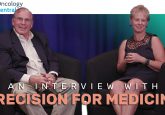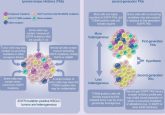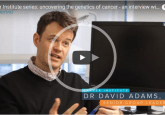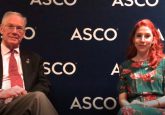Panel discussion: what does the future hold for tumor mutational burden?
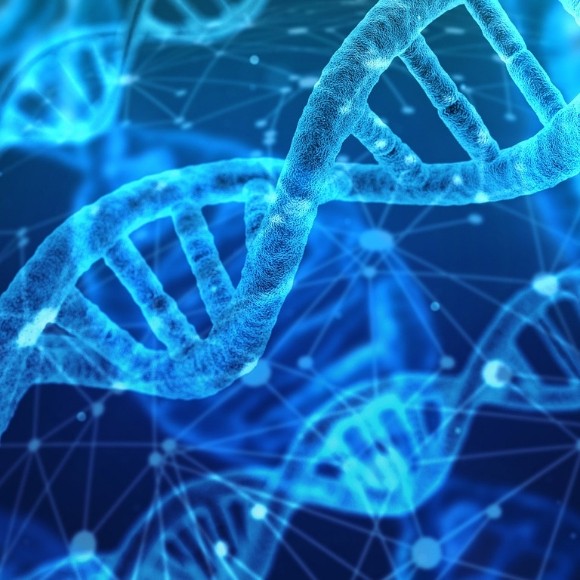
The research and development of cost-effective, precise and patient-accessible predictive biomarkers remains a clinical priority to derive most patient benefit from immunotherapy. Tumor mutational burden (TMB) is one candidate that could potentially lead the way for immuno-oncology to enter a new era of precision medicine. However, there are unclear standards for the measurement, determination and reporting of this metric.
In this free panel discussion, our experts provide insights into their own research with TMB including how they measure TMB, the challenges they have overcome, key trends they have seen and their outlook for the field.
What will you learn?
• Techniques and strategies used to measure and analyze TMB
• Challenges in measuring and interpreting TMB results
• Future developments for design and validation
Panelists

Aaron Lisberg
Clinical Instructor of Medicine
University of California, Los Angeles
Aaron Lisberg grew up in Minneapolis, Minnesota and received a B.A. in Biology from Grinnell College (IA, USA). He attended the University of Minnesota Medical School (MN, USA), where he was elected to the AOA honor society. He completed his Internal Medicine residency at The University of Washington (WA, USA) followed by fellowship training at University of California, Los Angeles (CA, USA) in hematology/oncology. During his medical training, Lisberg co-authored a number of high impact peer reviewed publications in a diversity of areas including stem cell therapy, skin cancer, and lung cancer.
As a member of the hematology/oncology faculty, he enjoys treating patients with a variety of hematologic and oncologic disorders. He specializes in the emerging field of immunotherapy, with a specific focus on malignancies of lung and head and neck. Active areas of research include predictors of response and toxicity to immune checkpoint inhibition in lung cancer, as well as the synergistic nature of radiation and immune based therapies. In his free time, Dr. Lisberg enjoys spending time with his wife and two children. Together, they like to explore LA’s parks, playgrounds, and diverse restaurant scene.

Balkees Abderrahman
Postdoctoral Fellow, University of Texas MD Anderson Cancer Center
PhD trainee, University of Leeds (UK)
Balkees Abderrahman, M.D. is the Dallas/Ft. Worth Living Legend Fellow of Cancer Research at the Department of Breast Medical Oncology, the University of Texas MD Anderson Cancer Center (TX, USA) and a PhD trainee under model “Individuals of Very High Quality” at the Faculty of Biological Sciences, the University of Leeds (West Yorkshire, UK). Author of “Hormones and Cancer, Oxford Textbook of Cancer Biology 2018”, “First Targeted Therapy — History of Tamoxifen, Estrogen Receptor and Breast Cancer, Cancer Drug Discovery and Development, Springer Nature 2018”, “Selective Estrogen Receptor Modulators (SERMs), Estrogen Receptor and Breast Cancer, Cancer Drug Discovery and Development, Springer Nature 2018”, “Steroid Receptors in Breast Cancer, The Breast: Comprehensive Management of Benign and Malignant Diseases 2017”, “Love at the Gate”, and “Oliver and the Rock”.
Key organizer and advocate at the UK Royal Society of Medicine (London, UK). Contributor at “Science”, “Nature”, “JAMA Oncology”, “ASCO Post”, “The Pharmaceutical Journal of UK Royal Pharmaceutical Society”, “The Hill”, “The Huffington Post”, “US News and World Report”, “The Nation”, and “The Independent”. A Finalist for the Outstanding Youth Award at the United Nations from over 86 countries for “Her outstanding work in tackling some of our greatest social, economic, and environmental challenges”. Balkees recently wrote the article ‘Tumor mutation burden: a promising predictive biomarker for cancer immunotherapy’ for Oncology Central.

Frédérique Penault-Llorca
CEO
Centre Jean Perrin
Comprehensive Regional Cancer Institute
Frédérique Penault-Llorca, MD, PhD, graduated as a medical specialist in pathology in 1993 and in oncology in 1995. In 1995, she received a PhD from the Université d’Aix-Marseille II (France) in cellular biology and microbiology, on the topic of HER2. Penault-Llorcais currently a professor of pathology at the University of Clermont-Ferrand (France), deputy director of the research team INSERM 1240 IMoST, CEO of the Comprehensive Regional Cancer Institute Centre Jean PERRIN, Clermont-Ferrand (France) and head of the Molecular Biology Platform at Centre Jean Perrin.
She is a member of several pathology and oncology societies, including the European Society for Medical Oncology (ESMO), the American Society of Clinical Oncology (ASCO), the French Society of Pathology, Senologia, and the Study Group for Prognostic and Predictive Factors for Immunohistochemistry (GEFPICS), with her main areas of interest being female cancers. Penault-Llorcahas conducted various biomarkers-based research studies in breast, colorectal, gastric, and lung cancer in relation to response to therapy. She also acts as coordinating pathologist for various oncology trials and has written more than 380 peer-reviewed publications and several books on female cancers and pathologic testing methods and issues.

Richard Kennedy
Global VP of Biomarker Development
Medical Director
Almac Diagnostic Services
Professor Richard Kennedy is the Global VP of Biomarker Development, Medical Director of Almac Diagnostic Services and CLIA compliant laboratory Director. He is responsible for the application of the company’s technology into medical practice. He graduated in medicine from Queen’s University Belfast (Northern Ireland) in 1995. As a post-graduate he trained as a medical oncologist and received a PhD in Molecular Biology in 2004. From 2004–2007 he worked as an instructor in oncology at Harvard Medical School (MA, USA) where he identified novel biomarkers and drug targets for cancer treatment.
In August 2007 he joined Almac Diagnostic Services as the director of a CLIA compliant diagnostics laboratory and has been involved in the biomarker design for several international clinical trials. In 2012 he established a research group in Queen’s University Belfast focused on various aspects of stratified medicine. Richard sits on the CR-UK new agents committee, MRC Biomarkers steering group, the National Cancer Clinical Trials Steering Group, the Enterprise Ireland Technology assessment panel and the all-Ireland Breast Cancer Predict Consortium. Previously he was a member of the CR-UK biomarker steering group and the Breast Cancer Campaign scientific advisory board.


